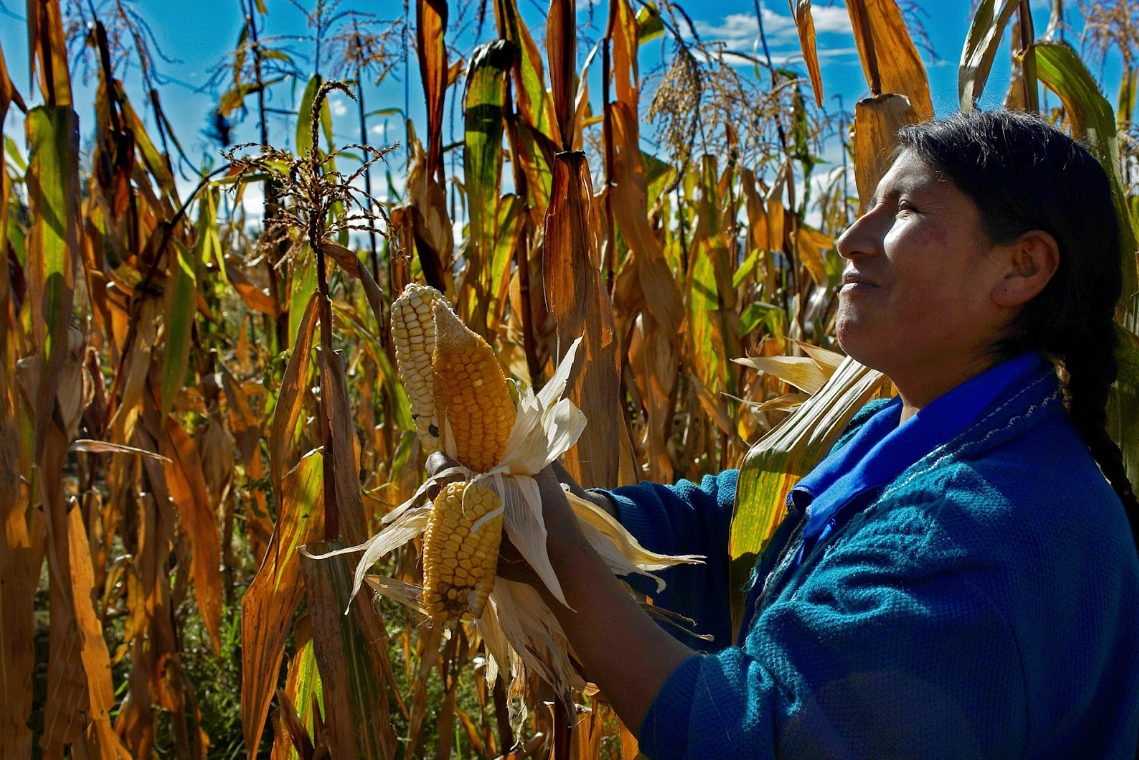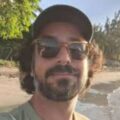Coauthor Fany Ramos Quispe
Faced with the need for a dialogue that can openly and collaboratively construct a science that equitably considers various realms of knowledge, including indigenous, local, and ancestral wisdom, and where their contributions to society and to sustaining life can be appreciated, spaces for inter-scientific dialogue are being created. These processes involve transdisciplinary research methods that employ tools of scientific diplomacy to facilitate negotiations and decisions on environmental matters. In this context, August 9th marked the International Day of the World’s Indigenous Peoples, and this year, more than ever, the significance of their wisdom in addressing multiple crises we face is acknowledged.
The role of indigenous youth as agents of change has also been recognized; however, it is necessary to create a science and decision-making arenas that transcend mere recognition. Science and decision-making should facilitate dialogue and collaborative action among various systems of knowledge, as well as individuals and entities who possess and practice them.
In this regard, an inter-scientific dialogue was initiated in June during the Sustainability Research and Innovation Congress 2023 held in Panama. Academics, government representatives, civil society members, representatives of indigenous peoples, local communities and Afro-descendents —referred to as PICLAs by its acronym in Spanish— and their youth shared insights to seek solutions to the numerous crises we are grappling with.
During this dialogue, the groups identified themselves as defenders of Mother Earth, knowledge, and ancestral wisdom, and which provide daily solutions to major climate and environmental problems. Nevertheless, a prevailing perspective of sustainability driven by the market still dominates our societies, exerting pressure on life systems and their values.
In a declaration aimed at advancing a more prominent, collaborative, equitable, and participatory science, PICLAs proposed some measures. Foremost among these is the suggestion to ensure equitable participation of PICLAs, especially women, in transdisciplinary science events. Furthermore, the aim is to achieve outcomes that cater to the needs of specific areas, while avoiding ontological and epistemic extractivism. Another measure seeks to facilitate cohesive and symbiotic participation between PICLA representatives and to communicate results to reinforce the dissemination of ancestral wisdom. Lastly, the goal is to establish spaces for spiritual connection practices, which are integral to ancestral wisdom.
Reflections on Inter-Scientific Dialogue and Ancestral Wisdom
There are significant challenges in democratizing information and decision-making spaces. Systematizing and disseminating regional, communal, and ancestral knowledge is crucial. The life models inherited by the PICLAs encapsulate knowledge that forms the foundations and perpetuates what we now recognize as sustainable development. Some of these practices pertain to establishing food production and processing systems for food sovereignty, with women as primary figures, life custodians and conduits for transmitting and revitalizing native languages, traditions and customs of the community.
Reconstructing and strengthening knowledge about PICLAs’ territories requires recovering or generating data not only about individuals but also about the life systems within which they reside. Furthermore, it is crucial to differentiate between experimentation—often conducted in scientific-academic/Western-modern contexts—and experience, which is transmitted within indigenous peoples’ territories and communities.
To build integrated knowledge systems, it’s imperative to fortify the regions’ capacities and incorporate younger generations, all while upholding the significance of knowledge equity and diversity. Fostering experience goes beyond mere experimentation: It involves knowing how to feel, think, express, desire, and act.
Science requires change, and fundamental to this is the dialogue between different systems of knowledge. In other words, science and ancestral wisdom must be brought closer together for constructing policies and solutions that do not overlook the life systems of the PICLAs as has been done so far. Civil society should participate in decision-making forums not only as observers but also as active agents defining the issues that science aims to address and collaboratively exploring and constructing solutions.
To achieve this, it is essential to foster more spaces for reflection to address the concerns of historically excluded sectors such as indigenous peoples, communities, Afro-descendants, and the scientific community. These spaces should also be factored into global efforts to tackle the climate-environmental crisis and the pursuit of justice.
*Translated from Spanish by Ricardo Aceves
Fany Ramos Quispe Environmental Engineer with specialization in Environmental Change and International Development and interest in the Science-Policy interface. Member of OWSD Bolivia and current IAI STeP Fellow at the Belmont Forum.













